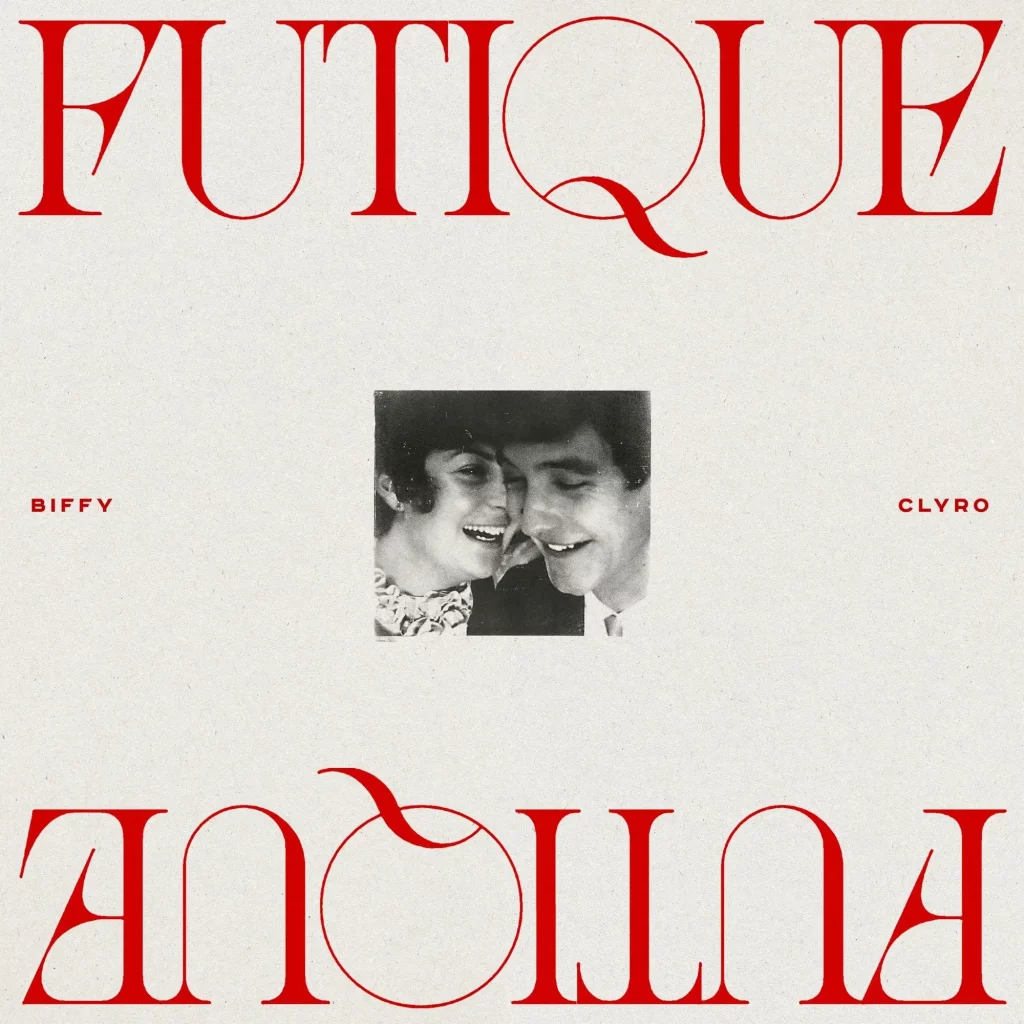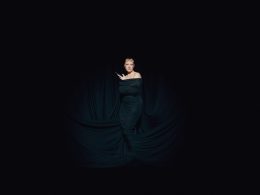Biffy Clyro need little introduction. Over nearly two decades, the Scottish trio have carved out their place as one of Britain’s most vital rock bands, moving seamlessly from chaotic riffs to soaring anthems that fill arenas worldwide. Futique, their 10th studio album, is both a reflection on time and change and a reminder of why they remain so distinctive.
Singer Simon Neil describes the record as “an exploration of ideas, objects or relationships that exist across time. We are never aware when we do anything for the last time, and there’s a beauty and sadness within that.” That bittersweet tension runs throughout the album – a mix of nostalgia, fragility and Biffy’s trademark fire.

The opening track, A Little Love, sets the tone perfectly. Released ahead of the album, it instantly announces itself as a Biffy song, that unmistakable blend of jagged riffs, unexpected shifts and Neil’s soaring vocal. It’s familiar, but also feels like the beginning of something new.
Hunting Season follows, leaning into the band’s heavier instincts. It’s the kind of track built for the live stage. The latter minute of pure instrumental, spotlighting Ben Johnston’s relentless drumming, conjures a vivid image of the shirtless trio jumping across the stage in true Biffy style, and it’s impossible not to anticipate how electrifying this moment will feel live.
When we’re hit with Goodbye halfway through the album, it feels like we’re all simultaneously taking a deep breath. It stands as one of the most affecting moments on Futique. It begins with a haunting stillness, surprising softness that then crashes into that trademark Biffy roughness. The addition of strings lifts the track into cinematic territory. It’s devastating yet life-affirming and a contender for one of the band’s finest songs in years.
What makes Futique especially compelling is how it balances echoes of past eras with forward motion. Fans of Puzzle will recognise the emotional weight and cathartic intensity, while flashes of the experimental layering from Opposites resurface in subtler form. Yet there’s also a stripped-back clarity here that recalls Ellipsis – less clutter, more focus. In many ways, Futique feels like the band pulling threads from their past nine albums and weaving them into something that honours their history while refusing to stay still.
At 10 albums in, many bands would be coasting. Instead, Biffy Clyro prove they are still searching, still stretching, still unafraid to pour their hearts into work that challenges as much as it comforts.
Futique isn’t just another chapter in Biffy Clyro’s story – it feels like a milestone. One that acknowledges the past, confronts the present and dares to look to the future.









